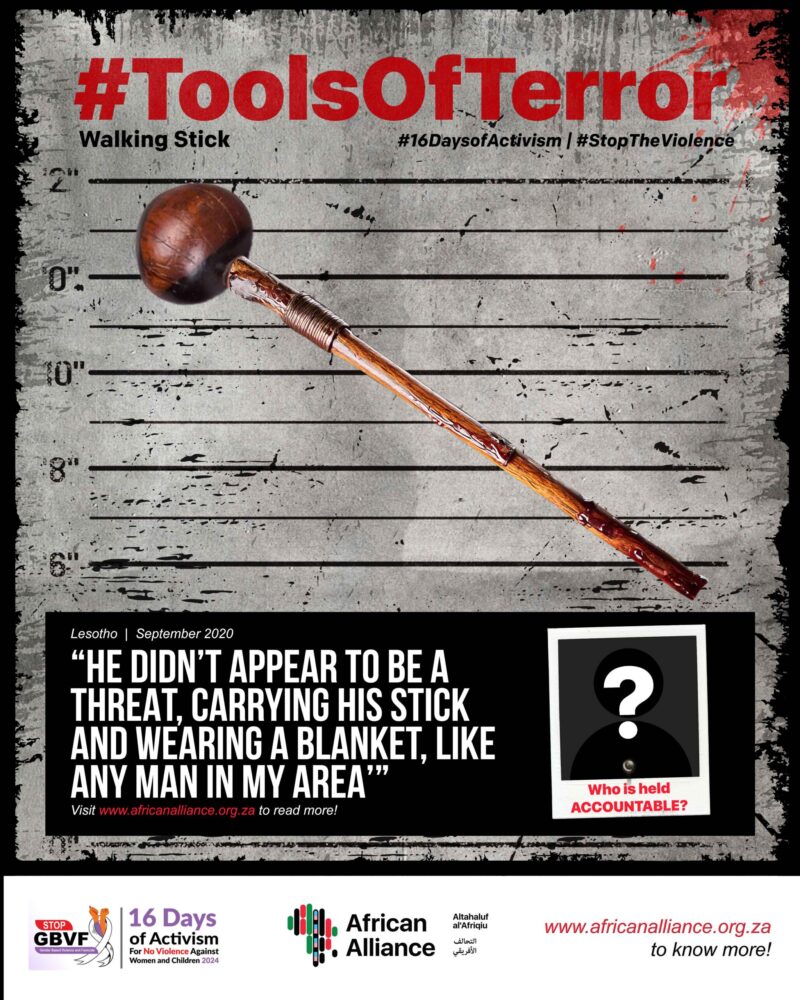
The Incident
In rural Lesotho, a man wielding a traditional walking stick approached two sisters who were fetching water. It was a school holiday and the siblings wanted to surprise their parents by helping out. They paid him no mind because he didn’t appear to be a threat, carrying his stick and wearing a blanket “like any Mosotho man,” one of the sisters explained later. They would soon learn how wrong they were.
The Survivor’s Story
The perpetrator initially posed as a benign figure, says the surviving sister, Thato Sello*.
He waylaid the sisters with questions and they began to feel uncomfortable. When Thato’s younger sister tried to leave, the man dropped the traditional Basotho blanket he was wearing, revealing that he was naked. He beat Thato’s sister with the stick, and then tied Thato’s hands and feet together. He moved back to Thatho’s sister, raped her and then beat her. Thato was forced to watch, helpless, as her sister screamed — and then stopped screaming altogether.
After raping and attacking Thato as well, the man ran off covered in blood. Luckily, he was seen leaving the pump covered in blood and apprehended. Thato and her sister were taken to hospital, but for the younger sibling, it was too late.
Legal Response
The perpetrator faced swift justice. He was convicted and sentenced to prison, where he remains to this day.
Systemic Challenges
There are still significant challenges in Lesotho’s approach to gender-based violence. Victims often encounter insensitivity from law enforcement and the judiciary. The lack of supportive environments for reporting and pursuing justice discourages many survivors from coming forward.
Although this story ended in a conviction and a prison sentence, many rural women are still unaware that they can seek retribution beyond what their Chief can provide. There are lots of cases where the chief and his councillors have proven to be effective in protecting rural women, but their coordination with hospitals and the police is still lacking.
Legal & Societal Context
Lesotho’s legislative framework includes laws like the Sexual Offences Act, yet societal norms and customary laws often undermine these protections. The recent Counter Domestic Violence Bill represents progress, but practical implementation and policing are crucial for real change.



